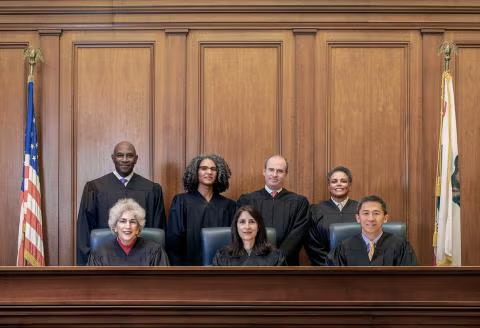California Courts are Refusing to Follow the U.S. Supreme Court’s Viking River Decision
What was Viking River?
A year ago, the United States Supreme Court issued its bombshell ruling in Viking River and held that employers can use a properly drafted arbitration agreement to force an employee to arbitrate the individual portion of her PAGA claim. The remaining representative portion of her PAGA claim – where that same employee sues on behalf of other “aggrieved employees” for their penalties too – would have to be dismissed, the Court concluded, because the employee no longer had standing to sue once her individual claims were sent to arbitration.
The Court’s Viking River decision, though tortured in its logic as we explained here, gave employers some much-needed help in defending against devastatingly costly PAGA claims. Now, as a result of Viking River, employers could use a smartly drafted arbitration agreement to avoid the huge, costly representative portion of a PAGA lawsuit.
Or so everyone thought.
While all courts across the nation must follow the U.S. Supreme Court’s rulings, when those rulings are exclusively based on a state’s laws (rather than on federal law), the state’s courts can choose not to follow the U.S. Supreme Court’s rulings. That rarely happens, however, because state court judges do not want to appear critical of the U.S. Supreme Court and its thinking. But, it happened this time in California, in a state where elected officials – and many judges too – are openly hostile to employers using arbitration agreements to deny rights to employees.
California Courts Decline to Follow Viking River
In the year since Viking River was decided, many California courts have declined to follow the U.S. Supreme Court’s ruling. These courts have all concluded that the U.S. Supreme Court reached the wrong result under California law. Four recent cases illustrate this point:
In Piplack v. In-N-Out, the California Court of Appeals explicitly rejected Viking River’s conclusion that once an employee’s individual PAGA claims were sent to arbitration the remaining representative claims had to be dismissed. To the contrary, the court concluded, employees “retain standing to pursue representative actions in court even after their individual PAGA claims are compelled to arbitration.” You can read the March 7, 2023 Piplack opinion here.
In Gregg v. Uber Technologies, a different California Court of Appeals reached the same decision and allowed employees to continue prosecuting their representative PAGA claims in court after their individual PAGA claims had been forced into arbitration. In Gregg, the court explicitly concluded that it was “not bound by the United States Supreme Court’s interpretation of PAGA” because it was a state – not a federal – law. You can read the March 24, 2023 Gregg opinion here.
In Seifu v. Lyft, another California Court of Appeals again concluded that employees retained standing to bring their representative PAGA claims in court even after their individual claims were ordered to arbitration. The court defended its decision by saying, “We conclude that we are not bound by the analysis of PAGA standing set forth in Viking River.” As purely a matter of state law, rather than federal law, the question of PAGA standing “must be decided by California courts.” You can read the March 30, 2023 Seifu opinion here.
In Nickson v. Sherman, yet another California Court of Appeals reached the same conclusion and held that employees’ representative PAGA claims survive after the employees’ individual PAGA claims are ordered to arbitration. In choosing not to follow the U.S. Supreme Court’s ruling and rationale in Viking River, the court said, “California courts…are the final word on the meaning and application of this state’s statutes.” The court then invited the California Supreme Court to step in and decide the issue once-and-for-all. You can read the April 7, 2023 Nickson opinion here.
Enter the California Supreme Court
On May 9, 2023, the California Supreme Court will hear oral arguments on this conflict between these cases and the U.S. Supreme Court’s decision in Viking River. The California Supreme Court will decide whether employees lose their right to proceed with their representative PAGA claims after their individual PAGA claims are ordered to arbitration (per Viking River) or whether employees’ can continue to pursue their representative PAGA claims after their individual PAGA claims are ordered to arbitration (per existing California law). The case raising this issue is Adolph v. Uber, and you can read the parties’ briefs here if you are interested.
If you are interested and want to watch a live video stream of the oral argument, you can do that here.
After an oral argument, the California Supreme Court has 90 days to issue its decision. This means that we’ll have our answer on this important question by August 7, 2023. Stay tuned! Of course, we’ll update you here once the decision is announced.
Insights
OUR BLOG


